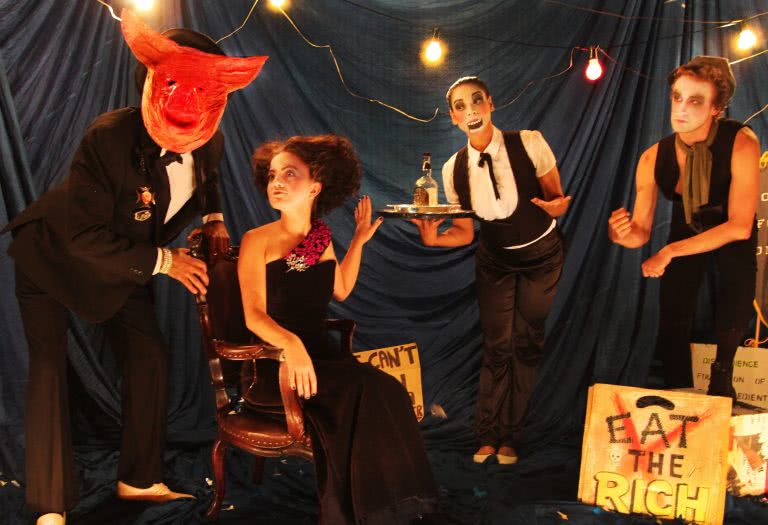You cannot consume The Age Of Entitlement passively. It quite literally grabs you by the hand and pulls you into the action – which could be either a party or a protest, depending on which floor you’re on.
As with Mongrel Mouth’s debut production, The Silence Came, The Age Of Entitlement is set in a multi-storeyed house, and you are encouraged to wander at will between the rooms and the storylines. You can go up to the ballroom and press the flesh with political figures and investors, or take part in a protest downstairs. You might even be asked to read poetry at a sit-in. There’s nothing more alarming, or exhilarating, than an actor stopping mid-argument and turning to you for affirmation, and this dissolution of the fourth wall is what makes Mongrel Mouth’s productions so great.
The Age Of Entitlement is notably darker than The Silence Came, and as soon as you walk through the door you’re confronted by the maudlin, slightly off-kilter costuming and make-up that set the scene for the undercurrents of unease that run through the storyline. At times it’s violent, terrifying, even disgusting, and there’s nowhere to turn away from it.
The experience forces you to weigh money and power against passion and integrity. What is worth sacrificing, and what is worth fighting for? Is it really necessary to compromise our beliefs for the greater good? Although it’s set in a weirdly indefinable time period, there are echoes of our current struggle with an economic system that seems based around the greed of a few at the cost of the many.
The best thing about immersive theatre is that no-one has the same experience. Stand back-to-back with someone and you’ll see vastly different plays. As a result, by the end, everyone has different answers to the questions. In the final scene, as the audience is forced to make some hard decisions, the commentary on our role in the greater picture becomes uncomfortably clear.
The Age Of Entitlement is playing at Merchants House until Saturday December 20.



































